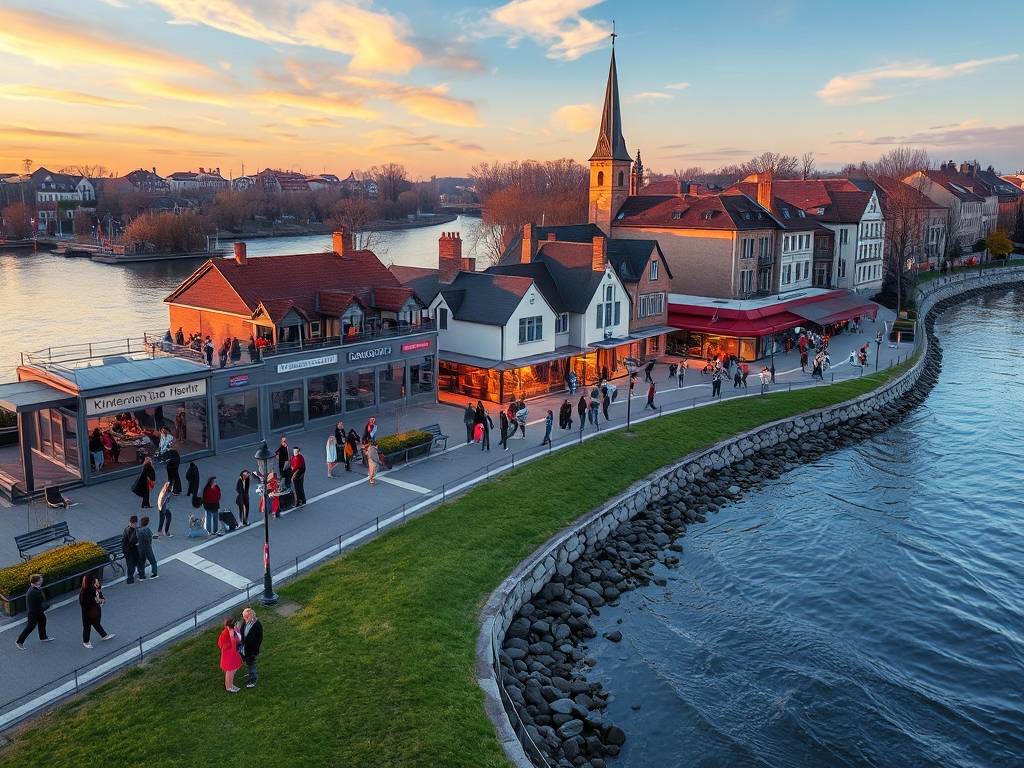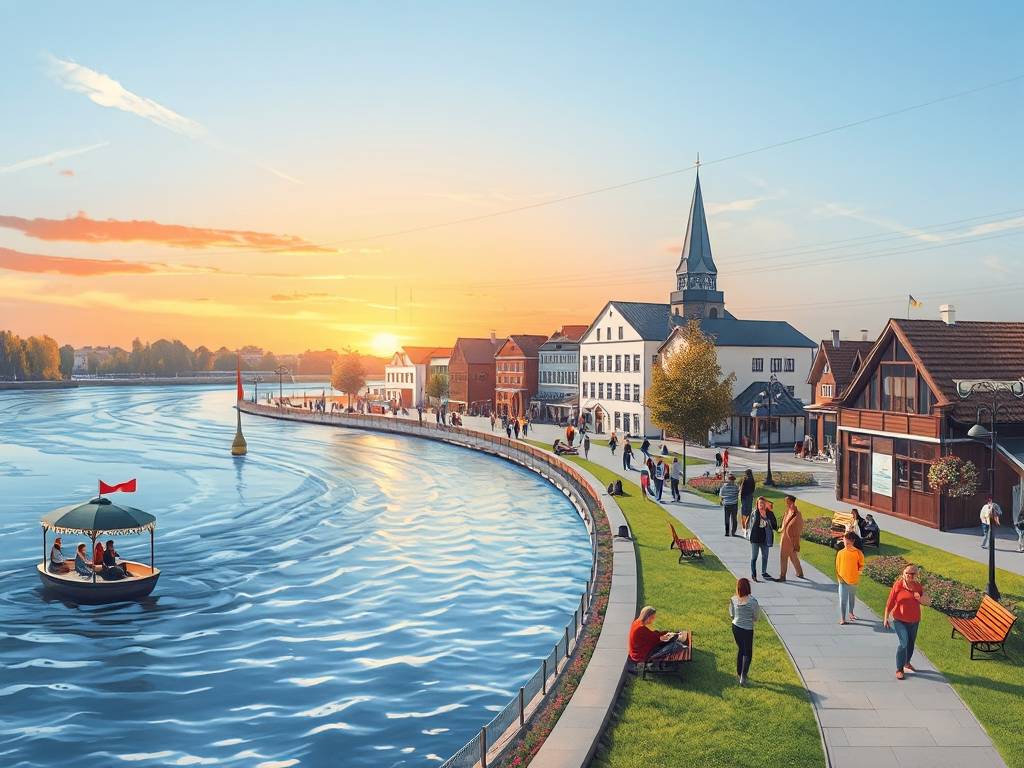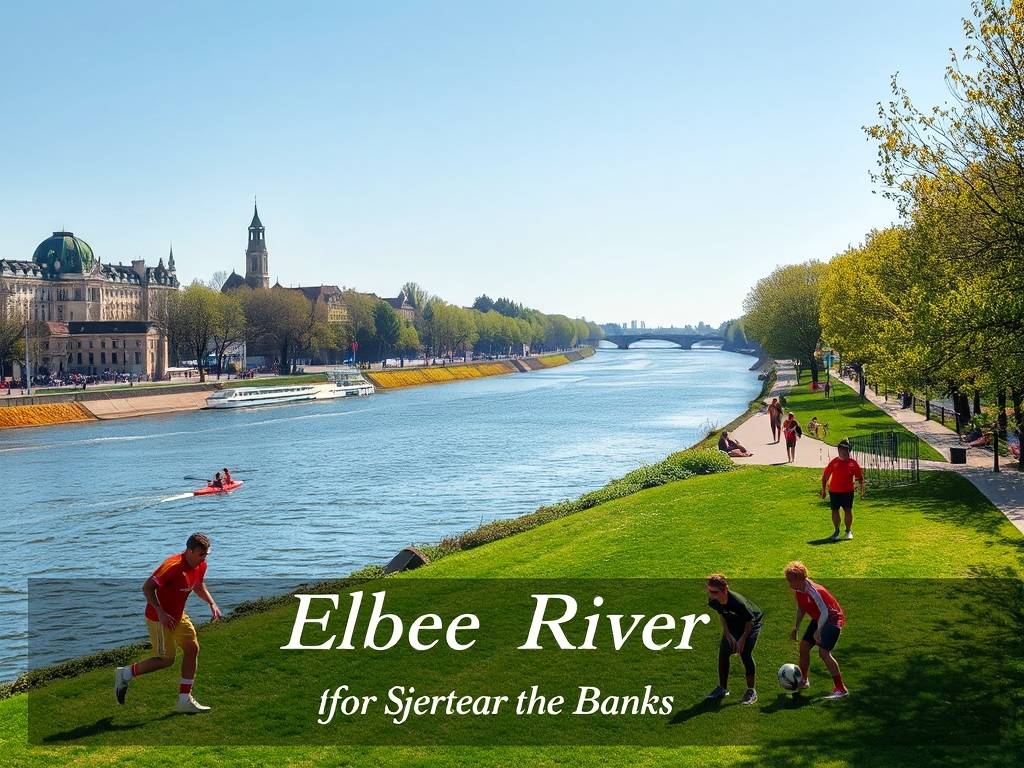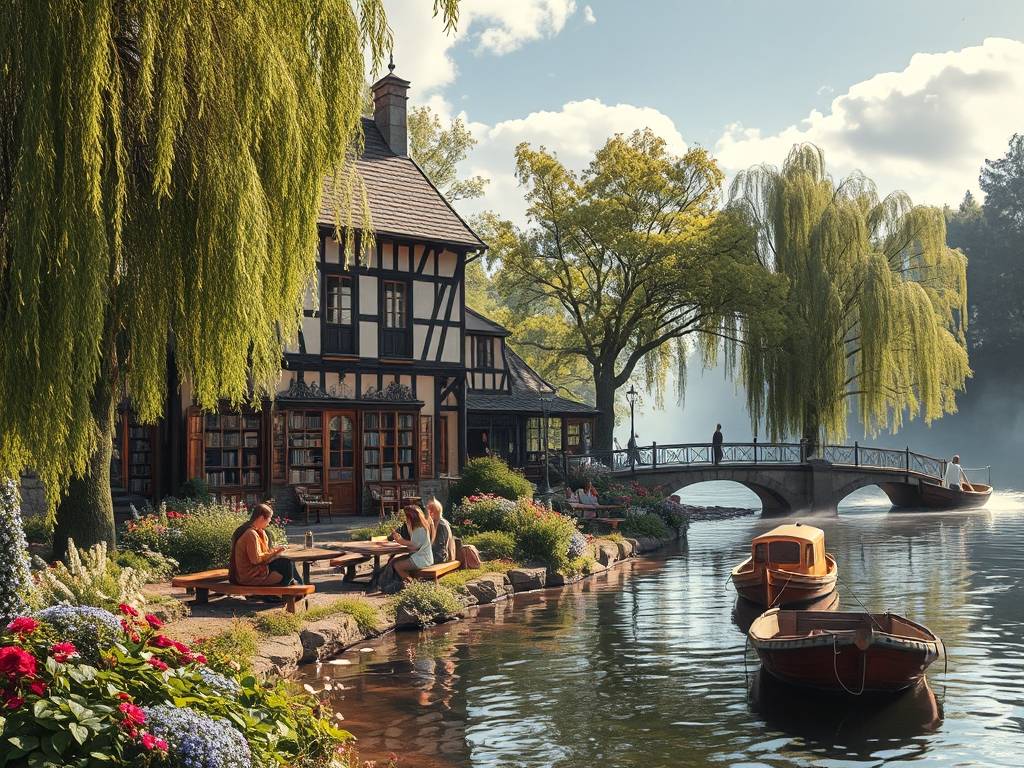Global Travel Information
Elbe River Community Centers: Local Groups & Activities
The Heartbeat of the River: How Elbe River Community Centers Weave the Social Fabric
There's a certain magic to the Elbe River. As it flows through the Czech Republic and Germany, it carves not just landscapes, but communities. In the cities, towns, and villages nestled along its banks, a unique kind of social ecosystem thrives, one powered by a network of vibrant and essential hubs: the Elbe River community centers. These are far more than just buildings; they are the living rooms of their neighborhoods, the engines of local engagement, and the guardians of regional culture. They are the places where the abstract concept of "community" becomes a tangible, joyful reality.
If you've ever moved to a new area, felt the pang of isolation, or simply wanted to connect with like-minded people, you understand the challenge. Finding your tribe isn't always easy. This is where the local community centers along the Elbe step in, masterfully solving this very human problem. They act as a central, accessible point of entry into the social life of the region. Their role is multifaceted, serving as an information hub, a social catalyst, and a platform for skill-sharing, all while celebrating the unique Elbe River regional identity.

A Gateway to Connection: The Unbeatable Value of Local Groups
Walk into any community center in Dresden, Magdeburg, or a smaller town like Riesa, and you'll immediately feel the buzz of activity. The primary function of these centers is to host and support a diverse array of local groups and activities. This is where the magic happens. The range is staggering, designed to cater to all ages, interests, and backgrounds.
For families, these centers are a lifeline. Parent-child playgroups offer a safe, stimulating environment for toddlers to interact while parents forge crucial support networks. It's not uncommon to see circles of parents sharing tips over coffee while their little ones play, forming friendships that often extend beyond the center's walls. For older children and teenagers, after-school programs provide everything from homework help to creative workshops. A youth club at an Elbe community center might be learning to code one day and embarking on a riverbank clean-up the next, instilling a sense of civic pride and environmental stewardship.
Adults find a wealth of opportunities to pursue hobbies and learn new skills. Language classes, particularly German for immigrants, are a cornerstone, facilitating integration and breaking down barriers. You might find a traditional Saxon craft workshop teaching pottery or weaving, preserving cultural heritage that has been part of the Elbe region for centuries. Meanwhile, in a brightly lit room, a yoga class breathes in unison, and down the hall, a book club debates their latest read. These are not just classes; they are regular social gatherings for Elbe residents that combat loneliness and create a structured, welcoming social calendar.
For seniors, the community center is often the cornerstone of their social life. Senior social clubs at Elbe centers organize card games, group walks along the river, and day trips. These activities are vital for mental and physical well-being, providing consistent social interaction and a sense of purpose. The intergenerational potential is also tapped into, with programs that pair seniors with young people for storytelling sessions or tech-help tutorials, bridging the generational gap beautifully.
More Than Fun and Games: Addressing Core Community Needs
The work of these centers goes far beyond organizing leisure activities. They are proactive in addressing pressing community needs, making them indispensable to the social infrastructure. Many centers host volunteer opportunities for Elbe River cleanup, directly tackling environmental challenges and fostering a collective responsibility for the river's health. Participants don't just pick up trash; they learn about the local ecosystem, creating a more informed and engaged citizenry.
Furthermore, these centers often serve as informal support networks. They are places where people can find information about local services, get help navigating bureaucracy, or simply find a sympathetic ear. During times of crisis, such as the devastating floods the region has experienced, these centers transform into coordination hubs for aid and support, demonstrating their profound resilience and central role.
The benefits of joining Elbe community activities are profound and well-documented. On an individual level, they lead to reduced stress, improved mental health, and the development of new skills. On a community level, they build what sociologists call "social capital"—the networks of relationships that enable a society to function effectively. When people know their neighbors, trust is built. This trust leads to safer, more cohesive neighborhoods where people look out for one another. The community centers along the Elbe are, therefore, actively building a stronger, more resilient social fabric, stitch by stitch.

Finding Your Place: How to Get Involved
The beauty of this system is its accessibility. You don't need a special invitation or to know the "right" people. Getting started is remarkably straightforward. The first step is usually a visit to the center's website or a walk through its doors. Most centers publish a monthly or quarterly program booklet, a colorful menu of possibilities. These are often available at local libraries and town halls as well.
Don't see a group that matches your interest? Many centers are incredibly supportive of grassroots initiatives. They provide the space and promotional support for residents to start their own clubs. That niche hobby you love—be it amateur astronomy, vintage film appreciation, or sustainable gardening—could be the next popular activity at an Elbe River hub. The center's staff are typically passionate community builders themselves, eager to help new ideas take root.
The best approach is often to simply try something. Attend a one-off event, like a public lecture on local history or a community potluck. This low-pressure environment allows you to get a feel for the center's atmosphere and meet people naturally. The goal isn't to fill every evening with an activity, but to find one or two regular social gatherings for Elbe residents that bring you joy and connection.
In conclusion, the community centers dotting the Elbe River are far more than the sum of their parts. They are the dynamic, beating heart of the region. They transform the potential for isolation into the reality of connection. They turn strangers into neighbors and preserve the rich tapestry of local culture while embracing new influences. By offering a space for everything from toddler playgroups to environmental advocacy, they comprehensively meet the social, educational, and emotional needs of their communities. They are the keepers of the river's spirit, ensuring that the communities along the Elbe are not just collections of houses, but vibrant, interconnected, and thriving places to call home. So, whether you're a lifelong resident or a newcomer, your local community center is waiting to welcome you—your own adventure in connection is just a doorstep away.
相关文章
- Elbe River Schools: Education Options Near the Waterway
- Elbe River Daycares: Childcare for Families Near the River
- Elbe River Libraries: Read & Study by the Water
- Elbe River Sports Clubs: Join a Team Near the Banks
- Elbe River Fitness Classes: Work Out with River Views
- Elbe River Yoga Spots: Practice Outdoors by the Water
- Elbe River Meditation Areas: Find Peace Along the Banks
- Elbe River Tai Chi Classes: Relax & Exercise Outdoors
- Elbe River Dance Events: Outdoor Classes & Parties
- Elbe River Karaoke Nights: Sing by the River
发表评论
评论列表
- 这篇文章还没有收到评论,赶紧来抢沙发吧~


